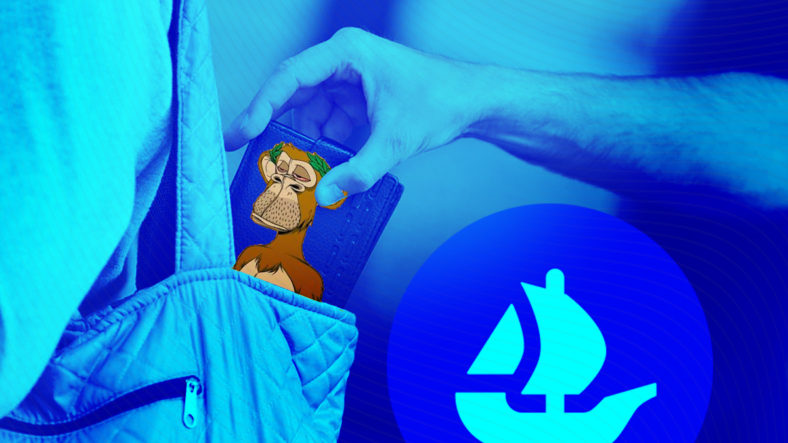Responding to community uproar, OpenSea has introduced a new anti-theft policy where police reports will be used to confirm all stolen item reports within the NFT platform, not just escalated disputes. If there is no police report within seven days, the platform will enable the buying and selling of the reported item again.
This is a huge improvement to the old policy, where users were often penalized for unknowingly buying a stolen item, or given contradictory instructions on how they should proceed with a situation they reported. This damaged their trust in the platform and made it possible for hackers to sell stolen items unhindered. On one occasion, a user was told to go ahead and buy a stolen item by the OpenSea customer support team. Another user who approached the support staff about a stolen item they had wrongfully purchased was instructed to sell it on another marketplace.
In its Twitter thread, which was met with some resentment from users whose projects got wrongfully delisted or who suffered the consequences of the dated procedure, the company ensured its users that “we care DEEPLY about enabling users to operate safely on our platform. Allowing the sale of stolen items and operating with stolen goods is no sign of a healthy ecosystem…but neither is a lack of trust from those of you who got us here.” They added: “Doing better begins with sharing and listening more. We’re committed to improving at both.”
OpenSea also plans to automate threat and theft detection in the future.
Earlier in May, the company introduced a set of new features designed to detect counterfeit NFTs and reduce instances of plagiarism and imitation to “improve the authenticity” of its marketplace.
The update included a complete overhaul of the account verification process through an invite-only verification application and a blue badge which would be available to accounts with at least 100 ETH trading volume.
The NFT marketplace also implemented a new two-part copy detection system to counter “copymints”, which are fake tokens ripping off original NFTs by selling users mirrored versions of them. Using image recognition technology and human reviewers who look at removal recommendations, OpenSea now scans NFTs on the platform, compares them with authentic collections and looks for flips, rotations and other variations to root out fake NFTs.
These new features are a continuation of a series of safety updates aimed at increasing trust, “protecting creators and collectors and ensuring our community can navigate the world of NFTs confidently”.
If you see something out of place or would like to contribute to this story, check out our Ethics and Policy section.














